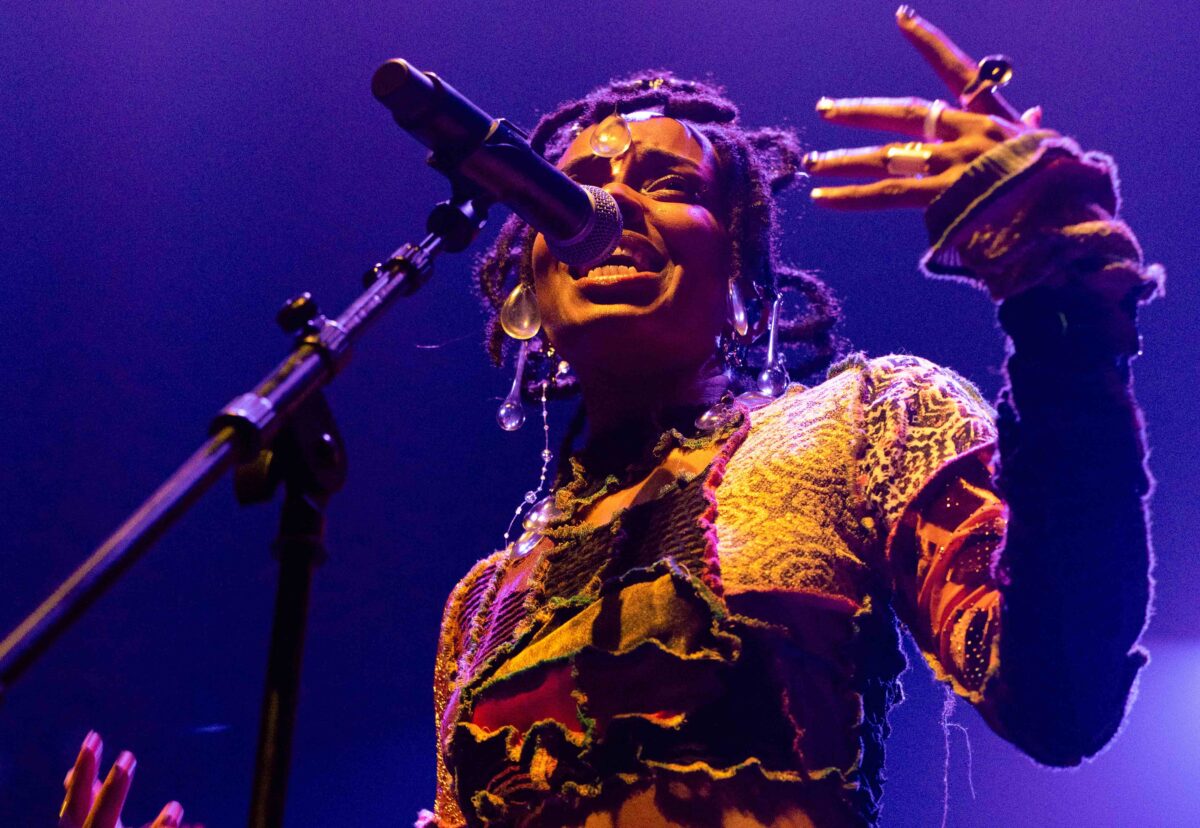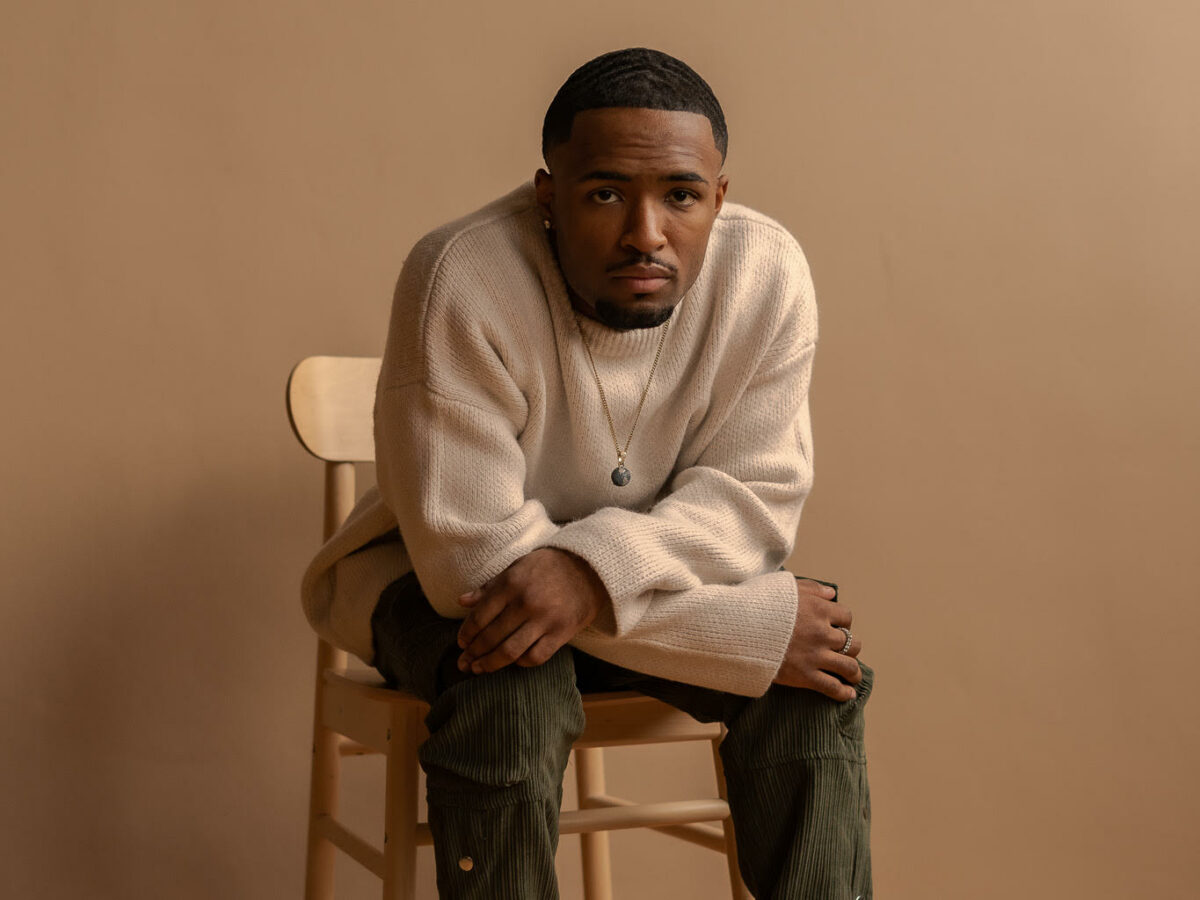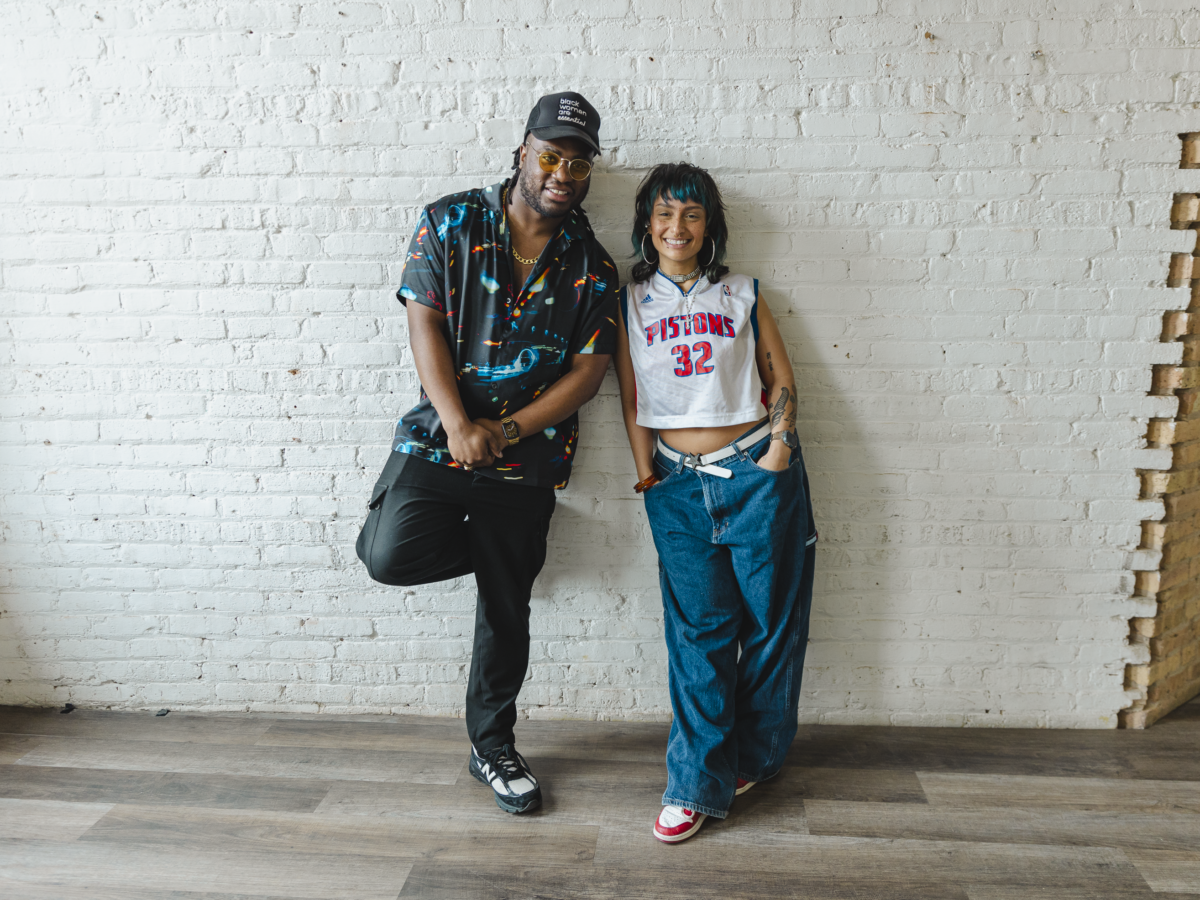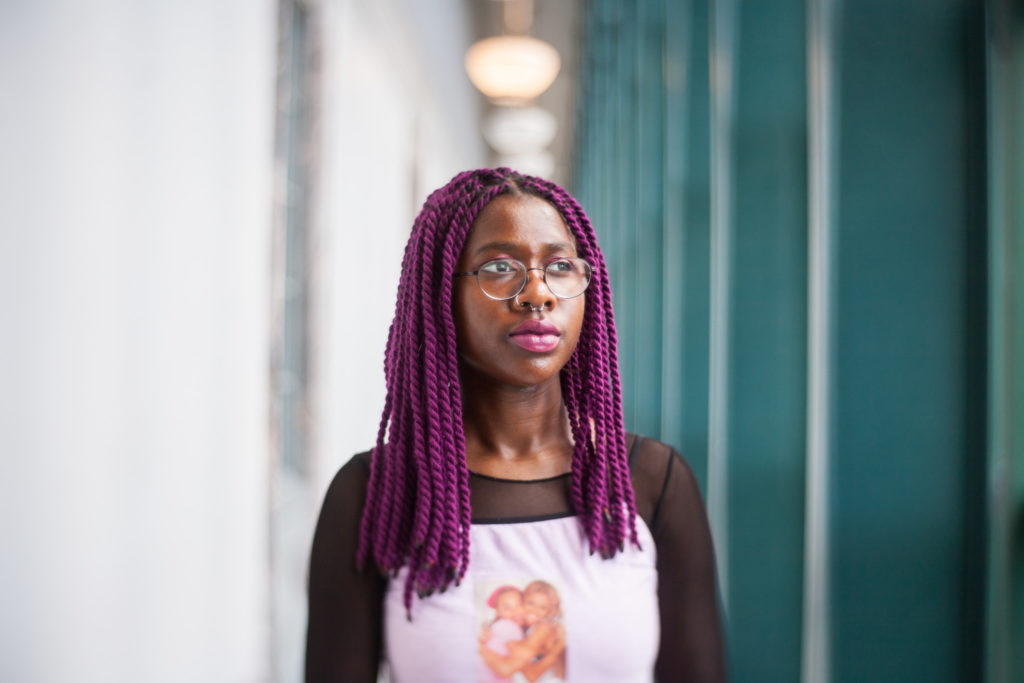On a snowy night in February, an eager and doting audience at the Vic Theatre cheered as the night’s performer took the stage. Jamila Woods, her locs sculpted into a crown and adorned with jewels, bathed in the crowd’s loving cheers before beginning the last show of the North American tour for her latest album, Water Made Us. After singing her playful first song, “Bugs,” she cheerfully called out, “Chicago, how you doing?” to a roaring response. This homecoming felt particularly intimate as Woods serenaded fans with some of the most vulnerable songs of her career.
“When I was writing, I really wanted to look myself in the face,” Woods said partway through her set. “Someone was joking with me like, ‘Where’s the Jamila song?’ But this is kind of like the Jamila album.”
As a Chicago transplant, I first encountered Jamila Woods’s soulful, singer-songwriter style in early 2018 through my Spotify Discover Weekly playlist. Like most musicians, she was someone I perceived as an amorphous artist, a creative being who existed in the soundwaves that came through my headphones. As I’ve come to call the South Side of Chicago home, I understand more clearly the cultural specificity of her lyrics, which explore themes of playfulness, joy, sensuality, and growth.
Mass media loves to fuel the narrative of a Chicago riddled by crime and violence. Stereotypes circulated about the South Side implicitly—and sometimes explicitly—dehumanize Black and Brown folks, who largely make up these communities. The city has experienced what some are calling a “Black Exodus” and an ongoing epidemic of missing Black folks, especially Black women and girls. In the face of despairing realities, we need more artists to claim Chicago as their home and create art that offers new visions of what a thriving Black Chicago can look like. Woods, along with many of her contemporaries and collaborators, offers a new narrative that celebrates the abundant talent the South Side nurtures and produces.
Raised in Beverly, Woods’s work as an educator and community organizer in Chicago has influenced her commitment to creative collaboration. This inclination is made evident through Wood’s involvement as a student turned executive director for Young Chicago Authors (YCA), a nonprofit supporting young people’s creativity. Similarly, her musical partnerships with other Chicago artists like Chance the Rapper, Saba, Peter CottonTale, and Nico Segal anchor her creative endeavors in the city. Whether inviting friends like Fatimah Asghar to co-direct her music videos or featuring South Side cultural staples like the Stony Island Art Bank in her visuals, Jamila makes it a point to reinvest in the places and people that have made her who she is.
On stage, CottonTale and Segal made guest appearances while Woods’s sister Kamaria, offered background vocals throughout the show. When explaining the origins of the angelic song “SULA (Paperback)” from her previous album LEGACY! LEGACY!, Woods said, “I was living with my sister at the time, and she was like, ‘I can play this song on the guitar. I can play it for you.’ We sung it that way, and I loved it even more than the original.”
To date, “SULA” is one of her most popular songs with more than 6 million streams on Spotify. For Woods, family and early creative relationships are foundational to her process and essential to the authenticity that rings clear in her music.
Wood’s aesthetic and artistry are particularly Black and femme. As a millennial Black woman, I see mirrors of myself throughout her work: choosing to release her album on October 13, 2023, based on astrological alignment; learning to swim in her early thirties to make underwater portraits for her album cover; and skillfully and effortlessly intertwining early-2000s alternative hits, like “Hide and Seek” by Imogen Heap and Paramore’s “That’s What You Get,” into her live musical sets.
In the first month of the COVID-19 pandemic, I received an email from a poetry newsletter that featured Woods’s poem “Day 29 (2020).” The knowledge that Woods, who once felt like a distant projection, was likely a few miles away, cutting onions and contemplating how to keep going in a moment of global chaos, bridged the gap between the scale of her talent and the intimacy of her artistry.
Again in June of 2020, Woods’s album LEGACY! LEGACY!, which was released a year earlier, served as a kind of anthem to the collective rage and reckoning that swept Chicago and other cities globally following the death of George Floyd. The jazzy anthem “BASQUIAT” played on repeat in my apartment. The lyrics “(Are you mad?) / Yes, I’m mad / (What make you mad?) / I don’t fuckin’ know / You should tell me so, you done done it,” stung with the rage I felt and didn’t know how to express.
Her willingness to place herself even more squarely at the center of her artistry for Water Made Us, serves as a reminder that the choice to grieve and grow as a Black person in relationship to yourselves and others, matters.
Woods remains devoted to Chicago and the community that raised her, even as she spends more and more time away, touring nationally and internationally and working on creative projects far beyond the bounds of the Midwest.
The title of Water Made Us was inspired by a Toni Morrison quote from a talk she gave at the New York Public Library in 1986: “All water has a perfect memory and is forever trying to get back to where it was.” This sentiment of returning to one’s truest nature encompasses the energy of the album. In the song “Good News,” Woods references the title, singing, “The good news is water always runs back / Where it came from / The good news is water made us.”
Much like the thesis of her song from a previous body of work, “EARTHA” (“Who gonna share my love for me with me?”), Water Made Us ponders complex questions about healing, accountability and commitment.
“A lot of the lessons that I was learning were breaking; cracking open this image that I have of myself [as] being a ‘good person,’” Woods said. What I noticed was the more I clung to that idea of myself, the bigger the blind spot became… I couldn’t see how sometimes I can hurt people.” She most clearly explores that dichotomy in her song “Wolfsheep,” repeating the line, “Everybody’s good, no one is,” like a mantra.
Her poem “I Miss All My Exes,” which is featured on the newest album, takes compassion for our duality and humanity a step further. The loving ode to exes past ends with the couplet, “I never left any one of them, not really / I just went somewhere new.” In the same way, Woods remains devoted to Chicago and the community that raised her, even as she spends more and more time away, touring nationally and internationally and working on creative projects far beyond the bounds of the Midwest. Much like the imagery presented in her song “Tiny Garden,” she doesn’t discard relationships or past life experiences but instead composts them in hopes that, with tending, they might be transformed into something new.
Additionally, intimate voice notes peppered throughout (including a conversation with a tarot reader and reflections on love shared by an elder) pull from the archives of Woods’s personal experiences to weave together her most revealing body of music yet.
“The songs are really about the way that we talk to each other and the way that we listen to each other, especially in moments of conflict,” Woods said to the crowd.
As conflict weaves its way through our lives in both intimate and collective levels, Woods invites us to become first and foremost in the right relationship with ourselves.
At the end of her set, Woods took a moment to share a story with the audience about Harriet Tubman. The iconic abolitionist survived a traumatic brain injury at the hands of an enslaver and was reported to have had prophetic dreams and visions for the rest of her life as a result. In one of those dreams, she heard God speaking to her.
“She woke up from [the] dream, and she said, ‘My people are free,’” Woods said. “She didn’t misspeak. She didn’t mean to say my people will be free. She said my people are free because she saw it. Then as we know, she spent her life molding her actions to make that the reality that she was living in.”
Walking out of the Vic Theater after the show, surrounded by hundreds of other concert-goers chatting and laughing and mapping their way home, I found a verse from the pre chorus to “Headfirst” replaying in my mind—“I know it took me long / But I won’t leave you”—and felt a hum of connection to this city, its people and myself.
Jasmine Barnes is a Chicago-based facilitator and multidisciplinary writer calling on the Black womanist tradition in her work. You can learn more about her by visiting her website: www.jasbarnes.com






